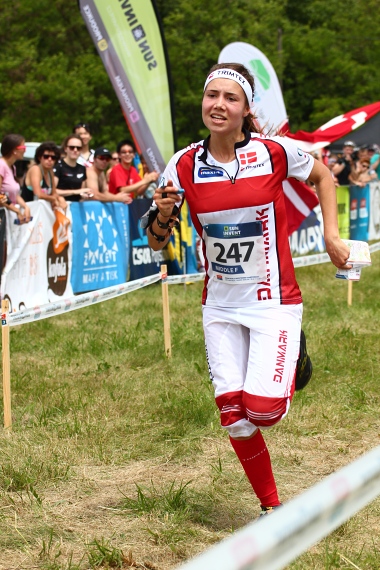
What will the future Junior World Orienteering Championships (JWOC) look like? The future JWOC program could become a carbon copy of the World Orienteering Championships (WOC) program: Introducing a mixed sprint relay and introducing a quota system for the forest races. Or it may stay exactly like it is today.
Probably the final solution will be somewhere in between. Aron Less (Hungary), member of the IOF Foot-O Commission, will head a project group which is responsible for looking into a new program. The project group is formed of former JWOC participants (current elite athletes), junior and senior coaches, past and future JWOC organisers, and other experts.
Read on for an interview with Aron Less on why JWOC is evaluated – and what the IOF hopes to achieve.
Q: There are many conservative people within the orienteering community who say that “JWOC is perfect as it is today”. In your opinion, what are the most important reasons for changing JWOC?
I remember that when the sprint was introduced into the program in 2006, a lot of people were skeptical about it
JWOC did not change much in the last 20 years. I remember that when the sprint was introduced into the program in 2006, a lot of people were skeptical about it. As it turned out, the event was a huge success. In everyday life, I also share the quote “if it ain’t broke, don’t fix it”, but one has to understand, that it’s the changes that drive the world forward. Just look at the recent introduction of sprint relay: Most orienteers were against its introduction into the WOC-program, as the concept was not tested. When they tried it out – some real head-to-head racing at overspeed – they become addicted.
The project is not necessarily looking to change something concerning JWOC. The expectations of a high-level sports event are different to what they used to be 10 or 20 years ago. We have to comply as do other sports, making sure of keeping the core values of orienteering. I fully agree that currently JWOC is a good product, but that doesn’t mean it can’t be improved.
Q: The JWOC long distance race is in today’s program open for all JWOC attendants – without any qualification or quotas. Some find it charming that the competition lasts for more than 7(!) hours – but this obviously has challenges for the organizers and it may impact the fairness of the competition (tracks, weather etc.). Is this a real problem – and what are the possible options for the long distance?
The current format of the JWOC long distance has a long history of unfair races with changing condition
The current format of the JWOC long distance has a long history of unfair races with changing conditions. In 2009 (Italy) and 2012 (Slovakia) the thunderstorms made it difficult for some of the juniors to fulfil their dreams. The JWOC long distance will also be up in the mountains in 2015 and 2016, where there is also a risk, that considerable tracks will appear for the later starters. A 7-hour race can also become rather boring after a while. It’s not the Tour de France, where you know, that most of the action will happen in the final hour. The JWOC long distance can certainly be developed to be more spectator friendly. Also for some of the competitors, the goal is more like “surviving” the course, not the result itself.
Q: Have you got any ideas as to how to develop the long distance in JWOC?
Juniors would be able to qualify to the Long “A”-final through the middle distance competition
One possibility is to have a qualification race (or races). This need not be a stand alone race, but juniors would be able to qualify to the Long “A”-final through the middle distance competition. The Long A-final would be run by 60 runners from the Middle A-Final, the 15 best from the Middle B-Final and the 5 best from the Middle C-Final – 80 runners in total. Places 16-60 in the Middle B-Final plus places 6-20 from Middle C-final would run the Long B-final. With 80 runners in the A-Final, the competition takes about 4 hours (with 2 minutes starting interval) which is reasonable for runners, teams, spectators and media. Starting order with start groups (early, middle, late), to avoid the same starting order as in middle distance.
Another possibility is to develop some kind of quota system as is used for WOC. Every nation would have have a guaranteed starting place in the Long “A”-final, plus additional national quota could be secured from past JWOCs and from previous races during the week.
Finally one intersting idea could be to introduce a mixed sprint relay for the day after the long distance, which could mean that some competitors would opt to miss the long distance in order to focus on the sprint relay and get a better result there.
Q: Do you think the JWOC program can have more races than it has today – or are we at the maximum?
It would be nice to have more diversity in the events, but will it compromise the starting fields too much?
I believe that running 5 races with maximum focus in one event is probably the limit for a competitor. If a new event would be introduced (even if it as short a a sprint relay), there is a possibiliy that people will start to miss some of the races and begin to specialize at such an early age. It would be nice to have more diversity in the events, but will it compromise the starting fields too much? Are the organisers ready to put in one more event into an already heavy schedule? These are some of the questions we are looking into and would really appreciate the views of current and recent JWOC competitors, coaches and anyone else interested!
Q: TV seems to be a very important issue when considering the WOC program – and last year some of the JWOC races were broadcast in Czech Television. Do you think “TV-friendliness” is something which must be taken into account for JWOC?
TV costs a hell of a lot of money
TV costs a hell of a lot of money. TV also needs special expertise, special course planning, etc. – if you want to make it really worth the money. You need a lot of sponsorship for TV – or very good connections to the local TV-company like Finland and Czech Repubic has. Some of the current JWOC events are not at all TV-friendly: long and sprint are impossible to cover. I believe that for now, we have to treat TV as a nice extra service.
Q: You were the IOF Senior Event Adviser of the successful JWOC in Czech Republic in 2013. Did you see special issues there which you think need to be “fixed”?
I was really lucky with the organisers in Hradec Králové as they had a very high ambition level and had the sufficient manpower to carry out their plans. The program was pretty tough and the rest day was much needed for both competitors and organisers,
Also the preparations for the Bulgarian JWOC in Borovets in late July are on track, so I’m confident that we are about to witness another fantastic experience!
Top photo: Junior World Champion Miri Thrane Ødum. Photo JWOC 2013.
 World of O News
World of O News
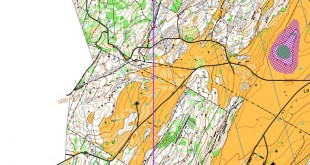
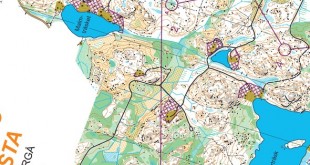
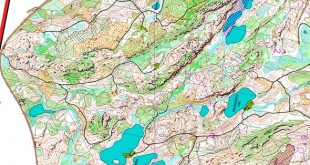
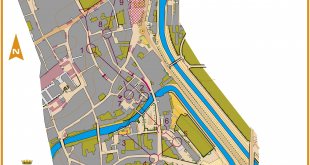
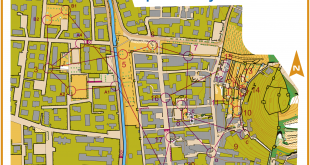
In my opinion qualification race for Long final would be a way better option. All runners beside top 60 from MiddleQ should have a chance to qualify for Long on equal basis no mater how good they perform in MiddleQ.
Middle B/C final could be renamed into LongQ and organized on the same terrain/day as MiddleF. Best 20 qualify for LongF. I think for juniors it is more interesting to run qualification long race instead of B/C middle final. Also from development aspect it is very valuable that they have another chance/opportunity to run/qualify for long final if they made a mistake in MiddleQ.
JWOC is all about exposing young athletes to the best of competition. A qualifier for the long would be much better than restricting numbers. I like Samo’s idea about taking the Middle Final(60) folk and staging a Long Qualifier for the remaining athletes on the Middle Final day. Our British athletes are very keen to see Mixed Sprint Relay being added into the programme!
Perhaps:
Day 1 – Accreditation/ Model events/Opening ceremony
Day 2 – AM Sprint final PM – Mixed Sprint Relay
Day 3 – Middle distance – qualification;
Day 4 – Middle Final & Long Qualification (remaining places TBA)
Day 5 – Rest – Excursions
Day 6 – Long distance final
Day 7 – Relay Closing ceremony, banquet;
Day 8 – Departure
This is just a thought and hasn’t been discussed with the GB Team.
JWOC should be more about the juniors themselves, and less about spectators and the media. WOC is the showcase where we should be trying for tv, media and spectator coverage. You find the same with other sports, where the mainstream media is not so interested in junior competitions, even at world level.
If tv coverage is available, like last year, that’s fine, but most effort should be put into making JWOC a good development experience for the WOC competitors of the future.
All of this debate has been on practical and fairness issues only. Issues like “the long distance being a long day”, unfair weather conditions, actual program of JWOC and which qualification system should be used have been raised for discussing. But in all of this I lack somebody to take one step backwards and think of the goals of JWOC. The IOF Competition rules states them very clearly:
JWOC 2.14 The championships shall be organised in accordance with the following principles:
The best junior orienteers of each Federation shall be offered competitions of
high technical quality.
The event shall have a social, rather than a competitive atmosphere, accentuating
exchange of experience
The costs of participating shall be kept low
Being present at JWOC as a coach from 2004-2010, many times the phrase “In the spirit of JWOC” was said at team officials meetings. I tend to believe this spirit is about to disapear if the current blind focus on reducing the number of starts in the long final continues.
What is JWOC all about? Of cause the athletes are trying their absolute best to win medals or achieve results valueable to them, but what is JWOC all about in the views of the sport of Orienteering? What is the strategic goal of JWOC? Look further up this post, the strategic goals seems clear in the IOF rules – JWOC is about exchange of experience and achieving high level of performance. In my opinion this is a key factor to consider before discussion practical things.
That said it is also wise to look back into history – much can be learned from it. Already in the 90’ties discussions were about the long distance (classic at the time) being a too long day. Actually at JWOC 1998 a model to cope with the issues were tested. A and B final were created and all nations given 3 spots in the A-final, and the 10 best nations of JWOC 1997 were given one extra spot.
Can anybody remember if this was a succes? To my knowledge the concept was changed back to normal already in 1999, why?
Being an athlete in 1998 (yes I was lucky both being selected for JWOC and the A final that year), I can remember how athletes in the B final felt less motivated and not a part of the real JWOC. It was simply not as motivating to compete at JWOC not having the same possibilities as the A final athletes.
Therefore before we even start to think of pratical issues we must be very clear on the goals we want to achieve. For me JWOC is about the same things as the rules states. JWOC is an important step towards world class performance at WOC later on, and therefor JWOC as a whole should motivate as many juniors as possible. It is better to include more, than to exclude a few. My example from JWOC 1998 tells the same story
I therefore truly believe a JWOC with less runners having a chance to fight for a gold medal in the finals, would be a major mistake. Qualifications is not the same as a finals – therefore if the program is too tough on the runners or new disciplines are needed, then drop all qualification races. They are only a waste of time at JWOC.
Then, will it be fair at JWOC having 170 runners in the long distance final? Most likely not, but using starting groups like today, the national teams still can put the best runners in the most favorable position. Having only 60 or 90 runners in a final of cause reduces this, but things will still be unfair depending on the terrain in question.
For me it is more important to motivate more runners for elite orienteering, than having 100% fair conditions for all runners. If the sport of orienteering shall be truly global, more motivated athletes around the world is a must. Therefor DO NOT reduce the number of participants, and DO NOT exclude runners from the finals. Let all compete in the finals – remove the middle qualification, in effect reducing costs of smaller nations and thereby increasing chances of participation.
Lars Lindstrøm
National Coach
Danish Orienteering-Federation
P.s. I haven’t even commented on the inclusion of quarantine zones at JWOC – this is a real misunderstanding of fair play. Quarantine zones does not secure anything, if one wants to cheat, it can easily be done within a quarantine zone. The long stay in the quarantine is much more unfair, than the risk of somebody knowing the current leaders race time. Drop quarantine zones – allowing organizers to focus on key elements of the competition: Controls in the right places, quality terrain and maps, challenging courses etc.